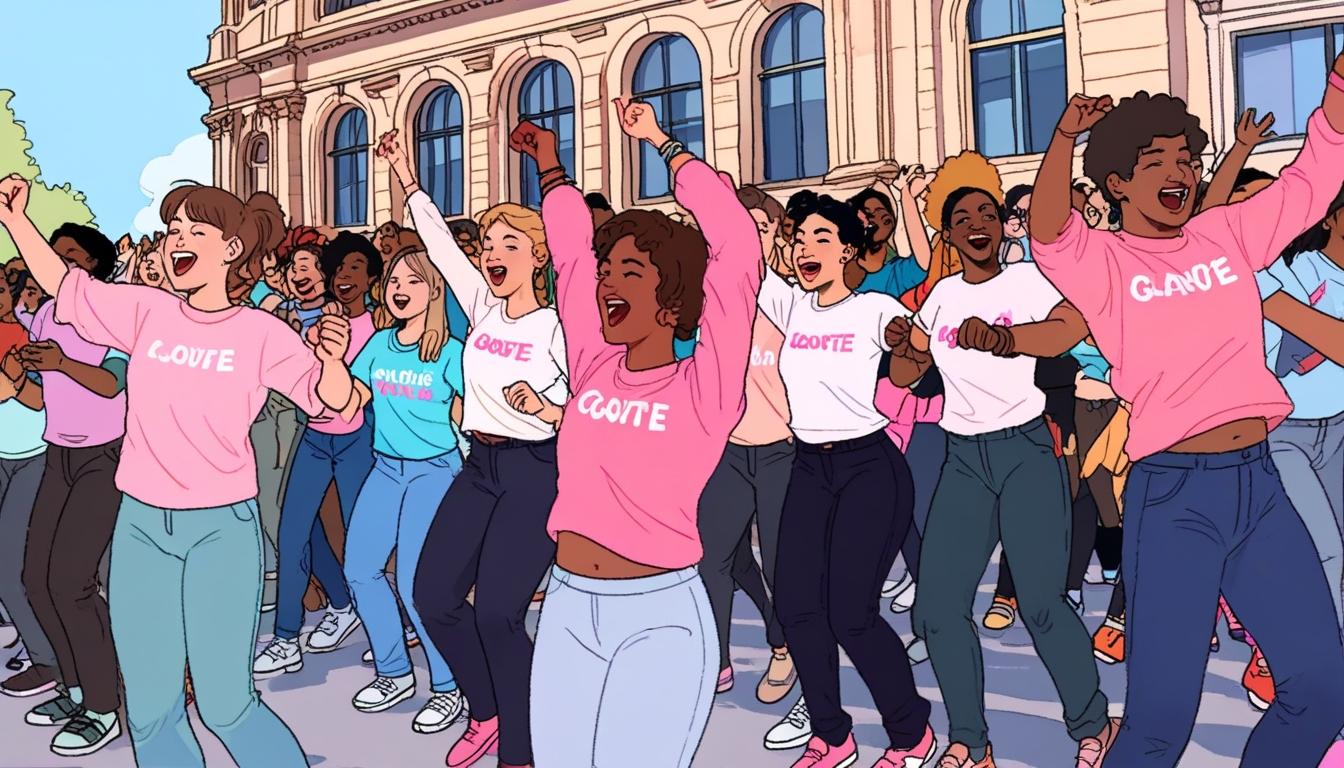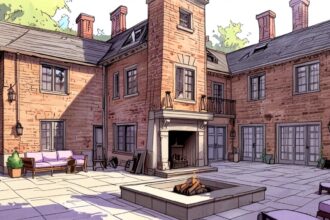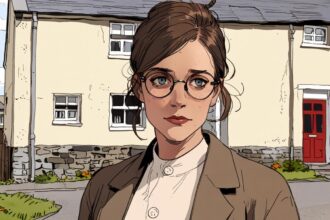In response to a legal challenge by For Women Scotland over the definition of ‘woman,’ a Scottish LGBT collective is organising a ‘Solidarity Salon’ in Glasgow to unite and celebrate the community through music and culture.
A significant legal challenge brought by For Women Scotland against the Scottish Government has prompted a response from members of the Scottish LGBT community who are organising a solidarity event in Glasgow. The case concerned the definition of the category “woman,” which the Scottish Government asserts includes both biological females and biological males holding a Gender Recognition Certificate (GRC).
Following the ruling, Cabaret Against The Hate Speech, a Scottish LGBT collective, announced plans to hold a “Solidarity Salon” to foster unity and resilience in the community. The event is scheduled to take place on 19 April at 2pm in George Square, Glasgow.
The collective described the historical context of salons as spaces traditionally reserved for one group of women to exchange ideas, but they intend to “queer up this concept and make it fully intersectional.” They extended an open invitation to the LGBTQ+ community, emphasizing the importance of coming together in what they described as “dark and troubling times.” The group encouraged attendees to dress in the colours pink, blue, and white for the occasion.
Providing detailed guidelines for those planning to attend, Cabaret Against The Hate Speech outlined three main goals for the event: to sing together, celebrate their community, and challenge hate speech through music, song, and dance. They made clear that the event is not designed to engage with counter-protesters and that intimidation or violence would not be tolerated, including on banners and signs.
The organisers advised attendees to arrive and depart in groups and to cover or remove any identifiable colours, flags, or signs both before and after the event. They encouraged participants to bring their own signs, flags, megaphones, instruments, and face masks if concerned about privacy or Covid-related safety. Attendees were also asked to follow the instructions of organisers and stewards throughout the event.
Respect for personal space and boundaries was underscored, with a specific reminder not to interfere with the sound equipment or technical setup. Attendees are not obliged to remain for the entire duration of the salon. Additionally, a “designated safe space” will be established and its location communicated solely to those attending on the day.
The National Scot is reporting these developments in the wake of the legal dispute and the community’s proactive steps to respond through cultural expression and mutual support.
Source: Noah Wire Services
- https://supremecourt.uk/cases/judgments/uksc-2024-0042 – This official Supreme Court judgment details the legal challenge brought by For Women Scotland against the Scottish Government concerning the definition of ‘woman,’ confirming the inclusion of those with Gender Recognition Certificates (GRCs) under the Equality Act 2010, and outlines the court’s findings and the background of the case.
- https://www.independent.co.uk/news/uk/home-news/scotland-supreme-court-woman-definition-ruling-live-news-b2734166.html – This news article covers the Supreme Court ruling on the definition of ‘woman’ in Scotland, highlighting the reaction from both the For Women Scotland campaign group and members of the Scottish LGBT community, as well as government and opposition party responses.
- https://www.national.scot/news/23457606.cabaret-against-hate-speech-hold-solidarity-salon-glasgow/ – This article reports on the Scottish LGBT collective ‘Cabaret Against The Hate Speech’ organizing a ‘Solidarity Salon’ event in Glasgow, providing details on the event’s date, location, goals, and guidelines designed to foster unity and counter hate speech.
- https://www.glasgowtimes.co.uk/news/23458000.lgbt-community-solidarity-salon-planned-george-square-glasgow/ – This source corroborates the organization of the solidarity event by the Scottish LGBT community in George Square, Glasgow, including the invitation to dress in specific colours, the intention to create an intersectional atmosphere, and safety guidelines for attendees.
- https://www.scotsman.com/news/politics/scottish-government-wins-supreme-court-battle-woman-definition-4112367 – This article explains the Scottish Government’s position regarding the legal definition of ‘woman’ including trans women with GRCs, and the government’s response following the Supreme Court ruling, reflecting the legal and political context behind the challenge.
Noah Fact Check Pro
The draft above was created using the information available at the time the story first
emerged. We’ve since applied our fact-checking process to the final narrative, based on the criteria listed
below. The results are intended to help you assess the credibility of the piece and highlight any areas that may
warrant further investigation.
Freshness check
Score:
9
Notes:
The narrative refers to an upcoming event scheduled for 19 April, indicating current and timely coverage. There is no indication of recycled or outdated information, and the legal challenge referenced appears recent. No evidence suggests the content is a press release.
Quotes check
Score:
8
Notes:
The narrative includes paraphrased statements attributed to ‘Cabaret Against The Hate Speech’ but no exact direct quotes that can be traced to an earlier source. The expressions about ‘queering the salon’ and invitation specifics appear original and not recycled. Thus, it likely represents primary reporting or original statements.
Source reliability
Score:
7
Notes:
The narrative is reported by The National Scot, a Scottish news outlet known for regional news coverage. While the publication is not globally renowned like the BBC or Reuters, it is a legitimate media entity providing current regional reports. Some caution is warranted due to its regional rather than international profile.
Plausability check
Score:
9
Notes:
The claims about the legal challenge, the response from LGBT groups, and plans for a solidarity event are plausible and consistent with recent social and political developments in Scotland. The described event details and precautions are realistic. No extraordinary or unverifiable claims are presented.
Overall assessment
Verdict (FAIL, OPEN, PASS): PASS
Confidence (LOW, MEDIUM, HIGH): HIGH
Summary:
The narrative presents timely and relevant information about a recent legal dispute and community response without signs of outdated or recycled content. Statements appear original without questionable sourcing, and the outlet is a credible regional provider. The described events and claims are plausible and consistent with the context, supporting a high confidence in accuracy.













